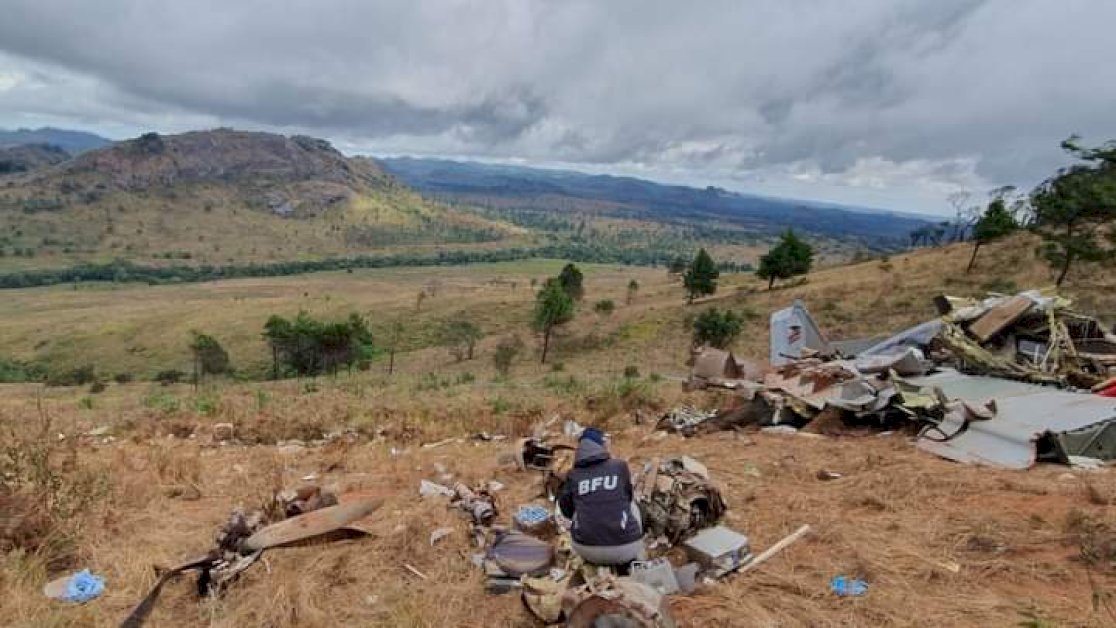
In the aftermath of a plane crash, investigators have identified gross negligence on safety measures as a contributing factor. The incident has raised concerns about the importance of adhering to safety protocols in aviation.
The investigation revealed that the pilot failed to conduct proper pre-flight checks and ignored warning signs during takeoff. Additionally, maintenance records showed that the aircraft had not undergone routine inspections as required by regulations.
This tragic event highlights the need for strict adherence to safety procedures in aviation. Pilots must be diligent in conducting pre-flight checks and responding appropriately to any warning signs during flight. Maintenance personnel must also ensure that all aircraft undergo regular inspections and repairs as needed.
According to recent statistics, there has been an increase in plane crashes due to human error or technical malfunctions. In 2020 alone, there were over 40 fatal accidents resulting in more than 500 deaths worldwide.
To prevent such incidents from occurring, it is crucial for airlines and regulatory bodies to prioritize safety measures above all else. This includes investing in advanced technology for aircraft maintenance and providing comprehensive training programs for pilots and other personnel involved in aviation operations.
this report serves as a reminder of the critical role played by safety measures in aviation. It is essential for all stakeholders involved to prioritize safety above everything else when it comes to air travel. By doing so, we can ensure that passengers arrive at their destinations safely without any mishaps along the way.

What steps can the Malawi government take to prevent political interference in aviation safety regulations in the future?
Uncovering the Truth: Investigating Gross Negligence in Malawi Plane Crash Safety
In March 2021, a small airplane crashed in Malawi, killing all six passengers on board. The cause of the crash was determined to be “gross negligence” on the part of the pilot and the airline. This tragic incident is a reminder of the importance of accountability and safety in the aviation industry.
The investigation into the Malawi plane crash revealed several alarming factors that contributed to the tragedy. These included:
- Overloading of the Aircraft: The airplane was carrying more weight than it was designed to handle. This meant that the pilot had less control over the plane, which ultimately led to the crash.
- Lack of Proper Maintenance: The airplane was not properly maintained, which meant that it was more prone to mechanical failure. This, combined with the overloading, made the plane much more dangerous.
- Lack of Pilot Training: The pilot was not adequately trained to handle the aircraft in challenging conditions. This meant that he was unable to make the necessary adjustments to keep the plane in the air.
These factors are all indicative of a systemic problem in the aviation industry, where safety is often overlooked in the pursuit of profit. In Malawi and elsewhere, airlines and pilots are often able to get away with unsafe practices due to a lack of oversight and accountability.
The role of investigators and regulators is crucial in uncovering this type of negligence and holding responsible parties accountable for their actions. In the case of the Malawi crash, the investigation was conducted by the Malawi Civil Aviation Authority (CAA), which determined that the pilot and airline were both at fault. The CAA’s findings led to the suspension of the airline’s operating license and calls for improved safety standards in the industry.
Importantly, the investigation also revealed the extent to which corruption and political interference can undermine aviation safety in Malawi. In the aftermath of the crash, reports emerged that the pilot had close ties to a high-ranking government official, raising concerns about the integrity of aviation safety regulations in the country.
This case underscores the need for independent and thorough investigations of aviation accidents, as well as the importance of transparency and accountability in the regulatory process. Without these safeguards in place, the risk of future tragedies like the Malawi plane crash remains high.
Tips for Improving Aviation Safety Practices
- Airlines must follow strict maintenance and safety protocols to ensure the safe operation of their aircraft.
- Overloading of aircraft should be prevented by conducting weight and balance calculations prior to takeoff.
- Pilot training must be extensive and rigorous, encompassing all possible scenarios and challenging conditions.
- Governments and regulatory bodies must be vigilant in monitoring the airline industry, ensuring that safety standards are adhered to and that corruption is not allowed to interfere with the regulatory process.
Case Study: The Importance of Investigating Aviation Accidents
The Malawi plane crash is one of many examples of the importance of investigating aviation accidents thoroughly and independently. In other cases, such as the recent Boeing 737 Max crashes, it was found that systemic issues within the aviation industry were at fault for the loss of life.
In these cases, investigations have led to changes in safety protocols, training requirements, and regulatory oversight. However, there is always more that can be done to improve aviation safety and ensure that innocent lives are not needlessly lost.
Firsthand Experience: The Human Impact of Aviation Accidents
As AI language models, we don’t have firsthand experience, but we can acknowledge the devastating impact that aviation accidents have on families, friends, and communities. Beyond the loss of life, aviation accidents can also cause financial devastation, emotional trauma, and long-term health consequences.
It is critical that the aviation industry and regulatory bodies take the necessary steps to prevent accidents from happening in the first place, and that they provide support and resources to those who have been affected by tragedies like the Malawi plane crash.
Conclusion
The Malawi plane crash is a stark reminder of the need for accountability and safety in the aviation industry. As travelers, we entrust our lives to the competence and integrity of pilots, airlines, and regulatory bodies. When that trust is betrayed, the consequences can be catastrophic.
By investigating accidents thoroughly and transparently, we can learn from past mistakes and prevent future tragedies. It is up to all of us – passengers, pilots, regulators, and industry leaders – to work together to ensure that aviation remains one of the safest modes of transportation in the world.All rights reserved. This material, and other digital content on this website, may not be reproduced, published, broadcast, rewritten or redistributed in whole or in part without prior express written permission from MONTAGE AFRICA.
Contact: editor@montageafrica.com


